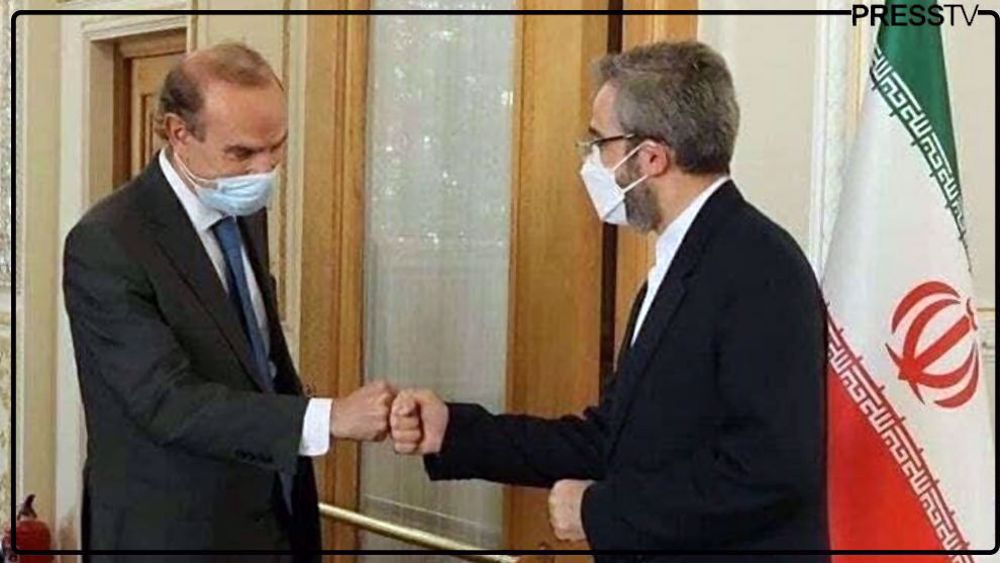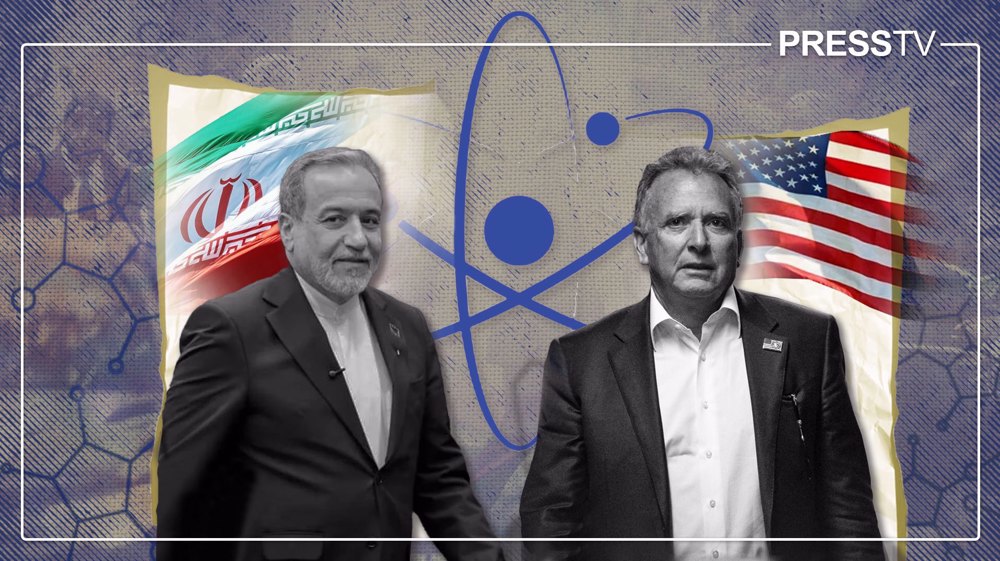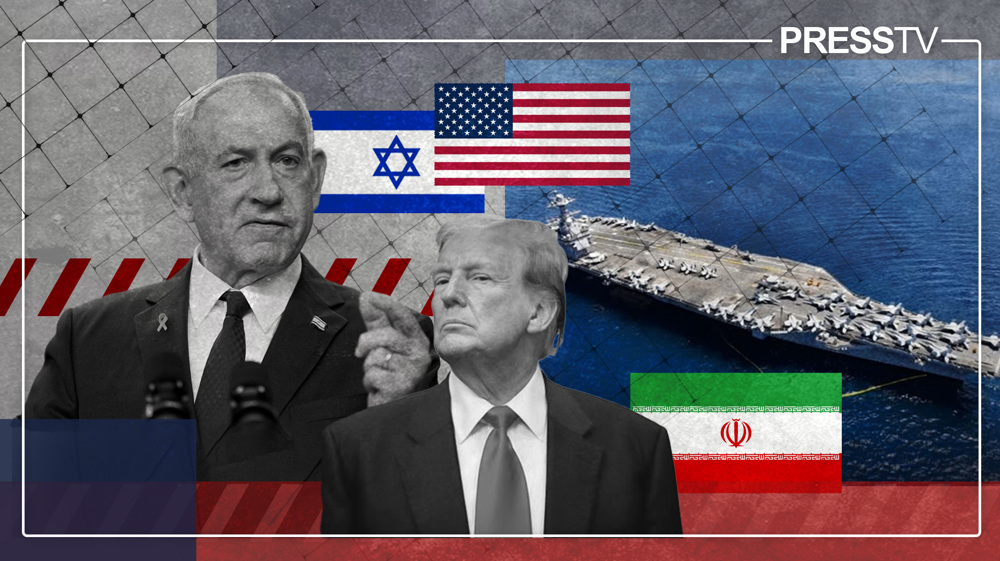Iran hits Israel from Vienna
By Elijah J. Magnier
No one is moving as intensively as Israel these days in a desperate attempt to prevent the US and Iran from reaching a nuclear deal even though it is far from being closed to be achieved. Tel Aviv is seeking support in Washington and the capitals of the European continent in the hope to prevent a nuclear agreement, which seems to have regained its speed in Vienna.
The first and most explicit signal came from Israel when Israeli Prime Minister Naftali Bennett refused to meet with the US special envoy for the nuclear file, Robert Malley. Bennett does not believe that Malley is the main reason behind the US administration's push for the deal with Iran. Instead, it takes into account that President Joe Biden is the one who appointed Malley to his position because he is the most qualified to reach a nuclear agreement with Iran, as the US president believes.
Therefore, the Israeli prime minister's discontent is directed at the US administration, pushing the negotiations toward the direction Israel fears: to strike a deal with Iran. Malley had visited Israel, the United Arab Emirates, Saudi Arabia, and Bahrain to explain the US position on reviving the negotiations with Iran through indirect US-Iranian talks in Vienna to discuss the complex nuclear file.
In contrast, Israeli Foreign Minister Yair Lapid visited London and Paris to pull these countries to the Israeli position. All he got was a supportive, empty English-style statement that Downing Street would "work day and night to prevent Iran from building a nuclear bomb," which Iran does not want to build.
The world is convinced that all the illegal sabotage operations at the Iranian nuclear reactor, the Israeli covert operations to disrupt the nuclear program, and the assassination of several Iranian scientists did not prevent Iran from reaching a very advanced nuclear level. On the contrary, Iran had reached a level never achieved before and did not offer to the world the tranquility that the 2015 agreement reached due to the US and EU lack of compliance with the JCPOA.
Israel Major General Isaac Ben-Israel said that he actually "had a conversation with (PM Naftali) Bennet shortly after he came to office," advising him as he "advised his predecessor to end Israel's opposition to the American return to the JCPOA."
"Netanyahu's effort to persuade the Trump administration to quit the nuclear agreement has turned out to be the worst strategic mistake in Israel's history," believes the Major General. The Israeli officer has a long record in national security, a former chief of the Air Force Intelligence, commander of Israel's military advanced research projects agency and an advisor to Netanyahu.
From its side, Tehran mocked the Israeli attacks and the US maximum sanctions and made President Donald Trump wait for months by the phone for Iran to call him to watch him leave the White House without speaking to him.
When Biden took office, he thought to have enough time to return to the nuclear negotiations and delayed mentioning the nuclear talks a few months. Iran forced him to rush to the meeting with the arrival of President Ebrahim Raeisi by increasing its uranium enrichment. Afterwards, Iran decided to delay the negotiation date for five months before agreeing to heat the Vienna meetings, imposing the date of the first meeting and the absence of the US flag in the negotiating hall.
Iranian behavior is most likely a hit to Israel, which wanted to push Washington into a military confrontation with Iran because Tel Aviv cannot be left alone to destroy all Iranian nuclear facilities. If Israel attacks Iran, it will undoubtedly achieve some casualties and damage to a few sites. However, it will be very far from destroying the entire nuclear program. Tel Aviv knows very well that Iran's missile capabilities - not to mention the capabilities of its allies – offers an outstanding possibility to inflict massive damage on the Israeli infrastructure. Therefore, Israel is trying to drag an alliance for many countries that seem to have no appetite for war and the desire to go to battle Iran without a cover from the United Nations and with no guarantee of the outcome.
The US understands that Iran is not weak. All cyber strikes and assassinations against Iranian scientists and attacks against Iranian ships have pushed Iran closer than ever to reaching 90% of enriched uranium.
In addition, Iran is at a "zero distance" from Israel through its strong ally in Lebanon, Hezbollah. Therefore, any war with Iran and its partners will give a painful blow to Israel and the other US and Middle Eastern countries target that host US military bases and are within the range of Iranian precision missiles and kamikaze drones.
Israel has tried everything in its power to prevent a nuclear agreement that is still far from reaching the finish line. However, all its attempts failed and pushed the world to witness Iran getting very close to possessing military nuclear power. Israel has no option but to go to its corner to lick its wounds. Israel has to accept that it can no longer change the facts. Iran already won with a round to its favor by initiating the Vienna negotiation, imposing its rhythm and conditions. Nonetheless, the final deal is not happening soon.
Elijah J. Magnier is a veteran war correspondent and a Senior Political Risk Analyst with decades of experience covering the West Asian region.
(The views expressed in this article do not necessarily reflect those of Press TV.)
Anthropic resists US War Department push for unrestricted AI access
Iran naval unit returns from drill, cmdr. vows to defend borders to ‘last breath’
VIDEO | Press TV's news headlines
Paris silencing pro-Palestine voices
Iran raises alarm at ‘environmental consequences’ of US militarism
Iran: UN Security Council inaction on Israeli crimes ‘catastrophic’
Report: US intel debunks Trump's claim of Iran working on ICBMs
Vance says 'skeptic of military intervention' after progress in Iran talks










 This makes it easy to access the Press TV website
This makes it easy to access the Press TV website